Countering Russian propaganda in Macedonia
By Aleksandar Nacev, Ph.D., executive director, Center for Security Research
Since 1989, one of the constant goals of Russian foreign policy has been to abolish — or at least weaken — the inner cohesion of existing trans-Atlantic and European institutions, such as NATO and the European Union, as well as the influence of the United States in Europe. In recent years, the Western Balkans have emerged as a front in Russia’s geopolitical confrontation with the West. Building on close historical ties, Moscow is taking advantage of political and economic difficulties to expand its influence, potentially undermining the region’s stability.
Since the 1990s, the Western Balkan countries have dealt with internal vulnerabilities and experienced external influence from state and nonstate actors. These sources of instability have made the region more vulnerable and susceptible to external influence from Russia. Internal vulnerabilities such as the rise of nationalism, historical grievances, corruption, weakened state institutions and media, and unemployment have left these countries unstable, enabling state and nonstate actors to influence them. The Western Balkans are likely to become a significant playing field for the competition between Russia and the West. Russia has played a spoiler role by using information and political, economic and military tools to discredit Western institutions — including NATO and the EU — and the foundations of Western democracy, and to strategically project and alter elements of power in Western Balkan countries. Russia has chosen to intervene in the region by aligning with different elements and interfering in these countries’ internal affairs. Over the past decade, Russia has sought to play a larger role. The tools used are not new, but the extent of the involvement certainly is. Russia’s tools include not only instruments of soft power, such as cultural, religious and media campaigns, but increasingly, economic intervention. Slowly but surely, Russian state-owned and state-affiliated businesses are taking possession of key sectors of Balkan economies, transforming Russia into a significant power in the region.
The Macedonian situation
Russian propaganda in Macedonia has been growing in sophistication, intensity, reach and impact. Russian efforts are carefully orchestrated, thoughtfully targeted, generously funded and professionally produced. These efforts to spread propaganda and disinformation go beyond the fake news phenomenon to a broader campaign to undermine elements of Western democracy. Russian influence has grown to include tools such as television and social media, and today Russia’s narrative is much more professional and trust-inducing. One reason why people in Macedonia are so susceptible to Russian disinformation is the speed and volume at which information is spread on social media and other platforms. Russian efforts to influence go beyond spreading propaganda and disinformation, and Kremlin-owned channels are not simply media, but rather weapons in the information war.
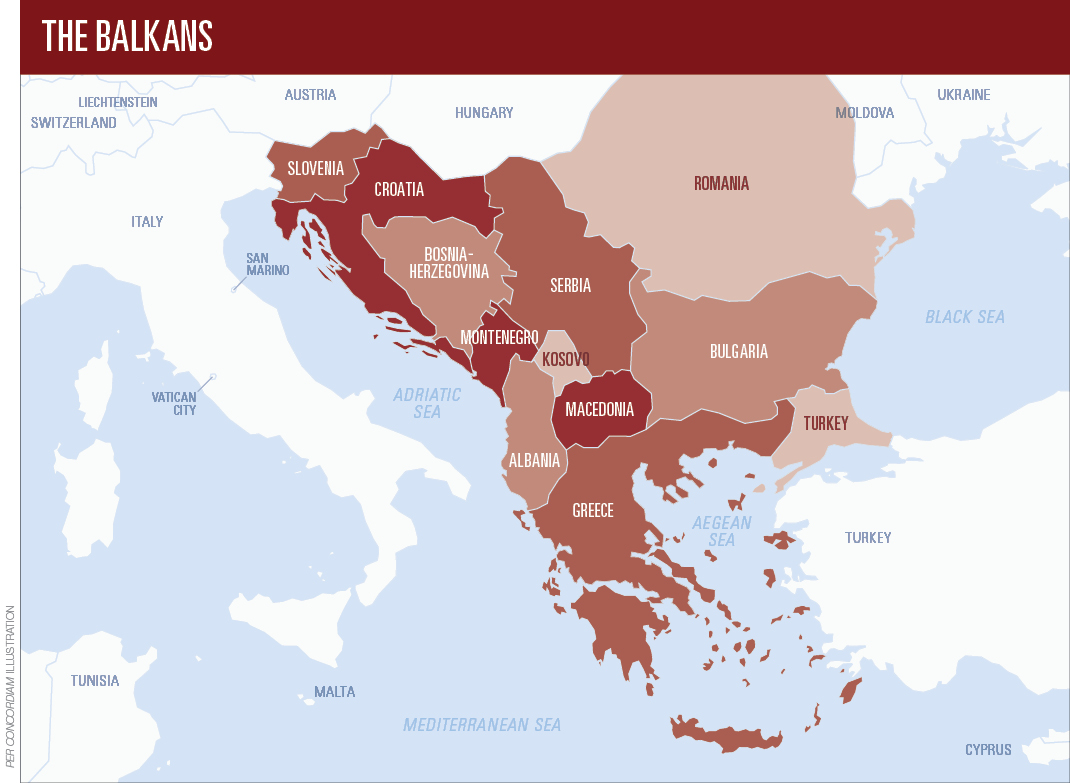 As revealed in leaked intelligence documents, Russian spies and diplomats have been involved in a nearly decadelong effort to spread propaganda and provoke discord in Macedonia as part of a regionwide endeavor to stop Balkan countries from joining NATO. The documents provide one of the clearest views yet of Russia’s ongoing efforts to increase its influence in the former Yugoslavia and pry the region away from the West. For the past decade, Macedonia has been “undergoing strong subversive propaganda and intelligence activity implemented through the Embassy of the Russian Federation,” according to a 2017 briefing prepared for the director of the Macedonian Administration for Security and Counterintelligence. These Russian operations began in 2008, at a time when Greece vetoed Macedonia’s bid to join NATO because of an ongoing dispute over the country’s name.
As revealed in leaked intelligence documents, Russian spies and diplomats have been involved in a nearly decadelong effort to spread propaganda and provoke discord in Macedonia as part of a regionwide endeavor to stop Balkan countries from joining NATO. The documents provide one of the clearest views yet of Russia’s ongoing efforts to increase its influence in the former Yugoslavia and pry the region away from the West. For the past decade, Macedonia has been “undergoing strong subversive propaganda and intelligence activity implemented through the Embassy of the Russian Federation,” according to a 2017 briefing prepared for the director of the Macedonian Administration for Security and Counterintelligence. These Russian operations began in 2008, at a time when Greece vetoed Macedonia’s bid to join NATO because of an ongoing dispute over the country’s name.
The document says: “By using the assets and methods of so-called ‘soft power,’ as part of the strategy of the Russian Federation in the Balkans, the goal is to isolate Macedonia from the influence of the ‘West.’” Moreover, Russia’s foreign policy is tightly correlated with its energy strategy, which is aimed at controlling strategic energy resources through partnerships with the Balkan countries. According to the document, the goal of the Russian strategy is to place Macedonia “in a state of exclusive dependency on Russian policy.”
Russia’s intelligence activities have been conducted from its embassy in Skopje by three agents of the Foreign Intelligence Service, overseen by a station in Belgrade, Serbia, as well as by four agents of the military Main Intelligence Agency, coordinated from Sofia, Bulgaria, the document alleges. Also said to be involved are local representatives of the Russian state news agency Tass and a representative of Rossotrudnichestvo (the name means “Russian Cooperation”), a Russian government aid agency that functions as a Russian version of the U.S. Agency for International Development for the exercise of soft power and is part of their ministry of foreign affairs. Russian agents have also attempted to influence and offer funds to Macedonian media outlets, including those aimed at the country’s Albanian minority, in order to spread “information and disinformation” in support of Russian policy goals, it says.
Although Macedonia has been a partner of the West since becoming independent from Yugoslavia in the early 1990s, Russia has increased its influence in the country in recent years. For example, honorary consulates established in the towns of Bitola and Ohrid function as “intelligence bases,” the document says, without providing further details. Like other countries, Russia is tapping into the rise of nongovernmental organizations (NGOs) in public life in Europe and beyond. NGOs and think tanks based outside Russia play a special role in the country’s foreign policy. They are used as tools to legitimize policies and manipulate public opinion abroad. The Balkan states have been subjected to more intensive Russian pressure recently. Russian secret services control most pro-Russian NGOs in Balkan countries. There is a clear link between obscure Russian-funded NGOs and media outlets that spread information with the aim of constructing messages that favor Russian interests.
There are several organizations operating in Macedonia that are funded by the Russian government, whether officially or unofficially. Their number and activities have been growing, but their financing is often complex and hidden from the public. Their goal is to shift public opinion toward a positive view of Russia and its policies and toward respect for its great power ambitions. Russia’s efforts appear to be having some effect. For example, the Macedonian government refused to join Western sanctions on Russia over the 2014 military intervention in Ukraine, citing the cost to its economy.
Four narratives
Russia’s information war is a massive, multifaceted and coherent operation. Russia denies direct involvement, but different narratives are supported by an active media campaign that tries to undermine Macedonian authorities and their political goals. The narratives range from using anti-Americanisms to emphasizing the common Orthodox faith in the Eastern Balkans. Russia has also drastically increased its cultural outreach in the country, pushing a “pan-Slavic” identity. Russia’s embassy has overseen the creation of roughly 30 Macedonia-Russia friendship associations, as well as opened a Russian cultural center in Skopje and sponsored construction of Orthodox crosses and Russian-style churches across the country. Russia’s four most-used narratives in Macedonia are:
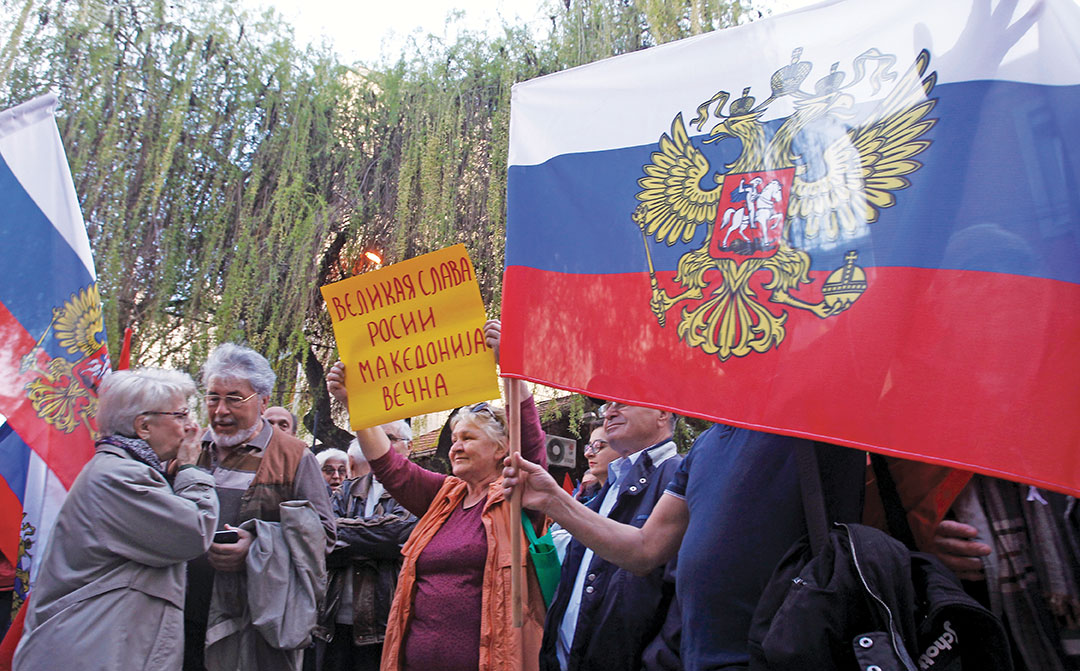
The anti-West: Stories about Western political and financial corruption, the subservience of Western leaders to shadowy, unaccountable corporations and America’s insatiable quest for global domination find resonance across the ideological spectrum, uniting everyone from left-wing anti-globalization activists to right-wing cultural traditionalists. Other widely used themes are: weak societies in the West, disintegration of international organizations (NATO and the EU), corrupted leaders and institutions, conspiracy theories, liberal values, decadence and decline of morality, and the inability to cope with refugees.
The Russian world: This is an ideological counter to the Western narrative. The Russian world incorporates Russian culture, language, history, a shared heritage and morals. The model of the Russian world is based on conservative values and is attractive to sections of the center-right and right-wing electorate due to their respect for leadership and hierarchy.
Pan-Slavism: In Slavic countries, including Macedonia, Serbia, the Czech Republic, Slovakia and Poland, Russia supports the old, but still somewhat popular idea of pan-Slavism: Russia pushes the notion that “we are all Slavs with the same origin and spirit.” That’s the purpose of the Forum of Slavic Cultures, founded in 2004 by Bulgaria, Bosnia-Herzegovina, Croatia, Macedonia, Poland, Russia, Slovenia, and Serbia and Montenegro. The forum wants to become a referential global platform of intercultural dialogue among Slavic peoples and a hub for Slavic arts and sciences. It has participated in numerous literary festivals and organized a Slavic film festival and concerts of Slavic ethno music, and it contributes to the preservation and promotion of Slavic cultural heritage, especially in the sense of ethnography, folklore studies, museology and archive studies.
Common religion: In countries with an Orthodox majority, such as Macedonia, Russian policy builds on the common religion and utilizes the Orthodox Church and connected organizations, such as the International Foundation for the Unity of Orthodox Christian Nations. The foundation awards prizes annually to heads of states, governments and parliaments, primates of the Orthodox Churches, and major public figures for contributions to the strengthening of economic and political ties among the states that are formed in the context of Eastern Christian tradition and for the consolidation of noble standards of Christian morals in the life
of the Orthodox community.
Recommendations
Propaganda should generally be exposed and condemned by governments and civil society as inappropriate speech in a democratic world and in the profession of journalism. State institutions should increase their efficacy in countering external attempts to influence their media space and undermine democratic customs and processes, and work to find patient, tolerant and forward-leaning answers. Efforts must be made to help people understand the complexity of Kremlin manipulation of public opinion, how it affects the political, social and business environment in Macedonia, and how the Russian narrative aims to construct attitudes and advocate behaviors, including Macedonian government policy toward and cooperation with the West. The Balkan countries are not fighting this infiltration with the measures used in other EU countries, such as: imposing travel bans on Kremlin activists, banning Russian TV stations (in Latvia and Lithuania), introducing entry bans for Russian journalists (in Estonia), expelling diplomats identified as Russian intelligence officers, implementing stricter NGO disclosure requirements, and not allowing organizations such as Rossotrudnichestvo to open branches.
Governments and political leaders have a crucial role to play in speaking out decisively and promptly against propaganda. They must recognize the existence of disinformation activities and the importance of understanding them. The broader public should be made aware of the existence and power of hostile propaganda in media sources. Political officials and experts should continuously push this issue and cover it on different platforms. These efforts should be systematic and followed by sociological surveys, enabling the development of appropriate counterpropaganda. Discussions should include various examples of disinformation and explicit disclaimers. Among actions that should be undertaken at the national level are:
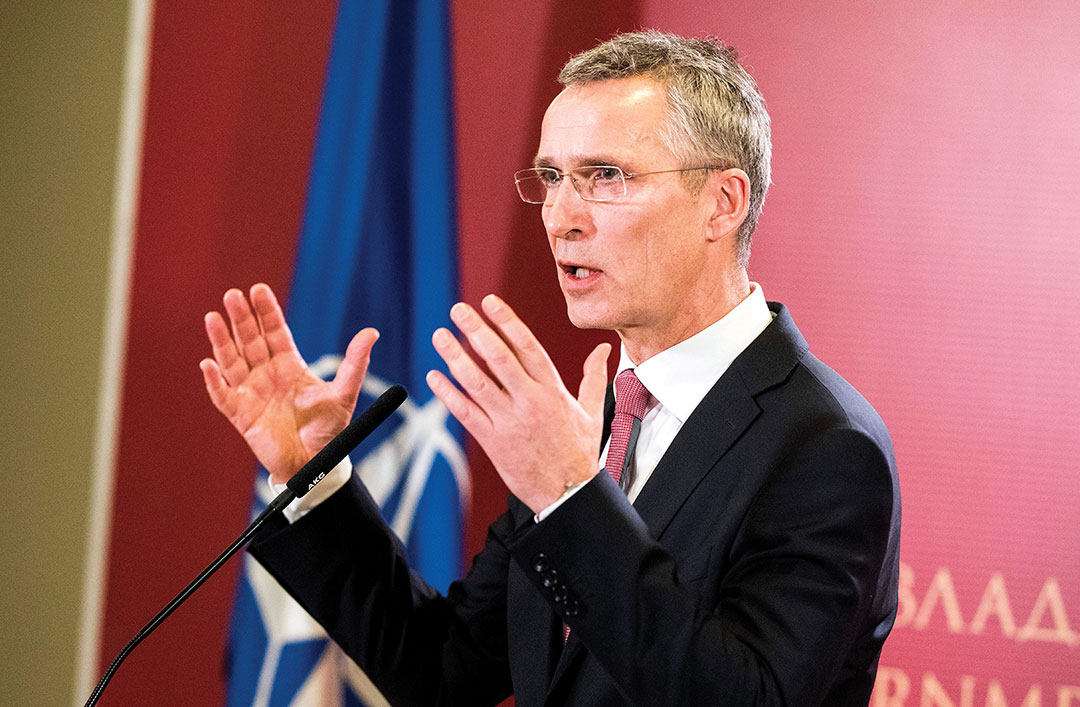
Build resistance to hostile propaganda. This must start with serious efforts to raise awareness among senior-level decision-makers (members of government and parliament, and journalists) focusing on understanding and recognizing the different types and techniques of propaganda, and learning about the various channels of spreading it and the variety of ways that hostile foreign propaganda may target the cornerstones of democratic systems, including through seemingly harmless topics such as social issues and religion. Such awareness-raising should be followed by social advertising campaigns for the public.
Review legislative frameworks. The regulatory framework should be demonstrably independent and any attempt to tighten the legislative framework should set clear and detailed standards, and be evidence-based and proportionate. Sanctions should be proportionate and graduated. Outright bans should be a last resort.
Enhance the public’s critical thinking and media literacy. Long-term efforts are required to enhance public understanding and education on the weaponization of the media, particularly online media. Perhaps providing simple user guides for the public on how to identify trolls (for example, when reading comment sections) would be a good first step toward raising society’s awareness of manipulation techniques used on the internet. Media knowledge and source appraisal in social media could be added to school curricula. A special education program on internet security should be tailored to groups most vulnerable to trolling as identified during the study, such as older people.
Strengthen the strategic communications field. Government departments working in strategic communications must have the ability to gather and analyze evidence, and find ways to counter disinformation campaigns. National institutions must find constructive ways to work together with civil society, media and individuals who are involved in media and communication. Funding should be increased to media regulators so that they can closely monitor media content to prevent media outlets from sharing disinformation and propaganda. Also, a strong public diplomacy effort is needed to explain problems with disinformation to friendly states and allies.
Governments and political leaders should refrain from funding and using propaganda, especially when propaganda may lead to intolerance, discriminatory stereotyping or incite war, violence or hostility. Steps should also be taken to abolish media run by the government or its proxies, and government should abstain from sponsoring online trolls or engaging in other covert media operations.
Recommendations for NGOs
Civil society organizations should play a meaningful role in exposing disinformation, raising media literacy, monitoring journalistic standards and providing media analysis. They should also help educate government officials, the public and the media on how disinformation is used. They should work on projects and other initiatives to identify and expose disinformation and propaganda; focus on explaining how propaganda campaigns work and how serious the problem is; and find where there are knowledge gaps and look for solutions to fill those gaps. NGOs should also work to establish networks through which they can share their findings and amplify each other’s work. Independent researchers and think tanks should also concentrate on these issues.
Recommendations for media
Cultivating a strong, professional media is very important in the battle against propaganda. However, a weakened media and declining professional standards, including a lack of high-quality reporting, makes this a challenge. Therefore, measures should be undertaken to raise professional standards, including adherence to internationally recognized ethical codes and standards for balanced and objective reporting and news presentation. The following recommendations should be implemented:
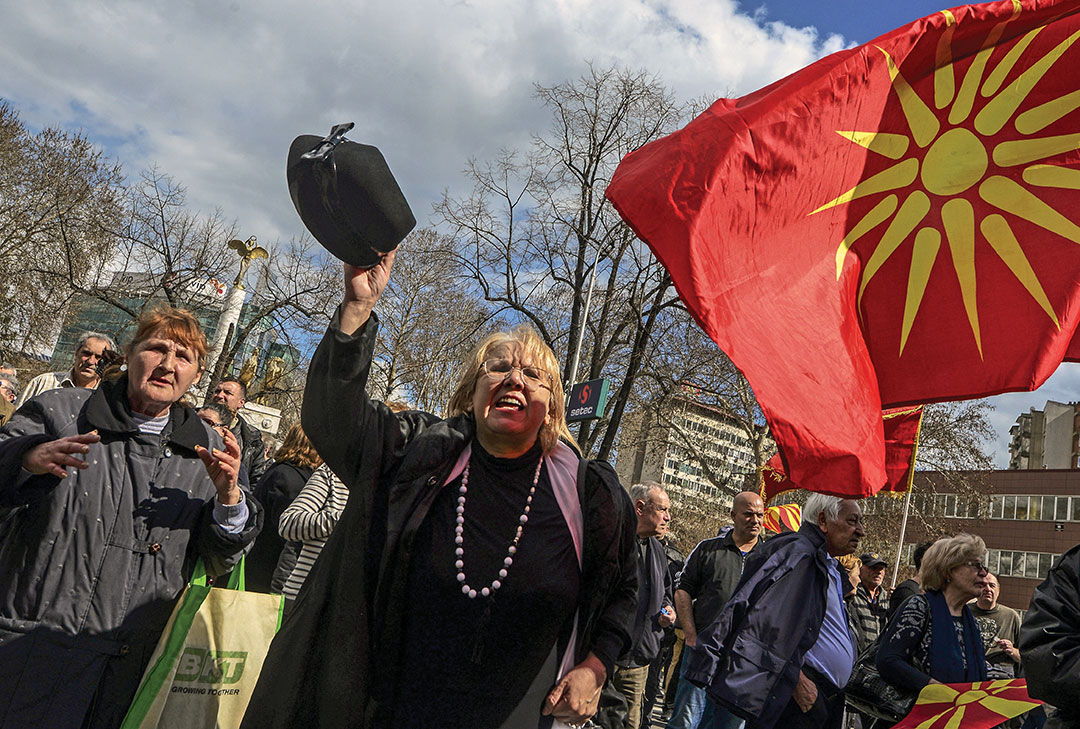
Follow high journalistic standards in news production. Analyzing information and checking facts before further dissemination is of the outmost importance in building credibility. In the new information environment where, with the help of social media, an individual can disseminate information as widely as a government institution, the media should exercise its gatekeeping role to separate fact from rumor, rather than becoming yet another unwitting participant in disinformation campaigns. This requires critical thinking and more thorough appraisals of sources.
Provide interesting, well-researched and unbiased information. Don’t publish second-hand information, especially when it comes to global issues. Although it is clear that some media, due to limited resources, cannot provide only first-hand data, they should at least research alternative views and opinions.
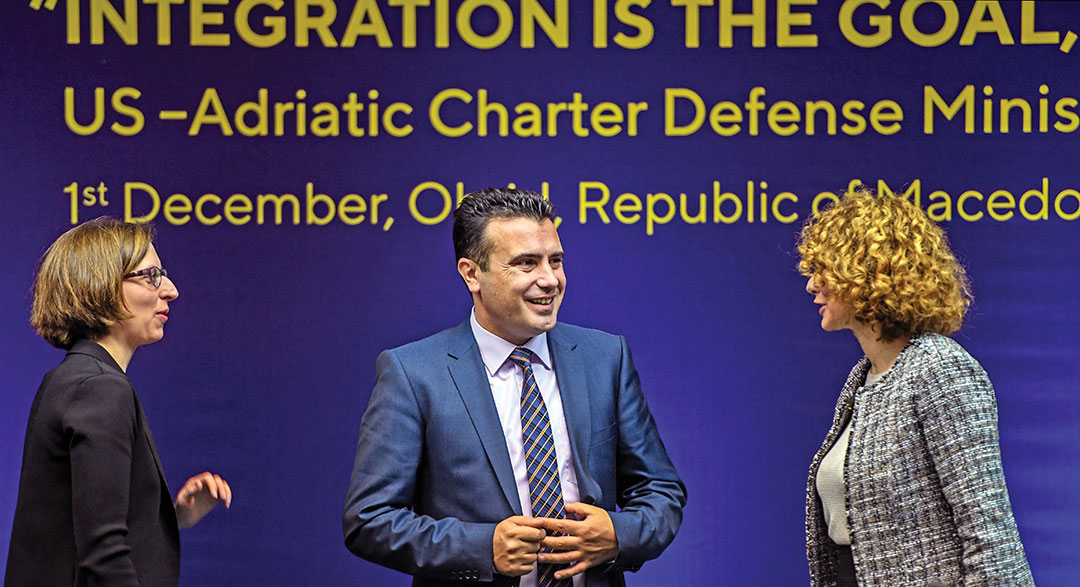
Media should self-regulate. This, where effective, remains the most appropriate way to address professional issues. Through self-regulation, the media exercises its moral and social responsibility, including counteracting propaganda of hatred and discrimination. Ethical codes and self- and co-regulatory instruments should ensure that cases of propaganda are brought to the public’s attention. Media should be a barrier to negative stereotypes of individuals and groups and blatant or veiled expressions of intolerance, and it should raise awareness of the harm caused by discrimination. They should thoughtfully consider whether what they are publishing is conducive to defamation or ridicule based on sex, race, color, language, faith and religion, affiliation with a national or ethnic minority or ethnic group, social differences, or political or other opinions, and promote self-regulation mechanisms that will effectively address any use of hate speech. Journalist organizations, self-regulatory bodies, and the owners and publishers of media outlets have the duty to look seriously at their content. Propaganda does a disservice to all credible, ethical journalists who have fought, and in some cases given their lives, to produce real, honest journalism.
Conclusions
Key implications derived from this research must be communicated to decision-makers and other stakeholders in a way that encourages them to factor the implications into their work. Only through a holistic approach from all stakeholders can Russian propaganda and its influence in Macedonia be effectively countered and society made more resilient. Government, concerned citizens and journalists must work together to fashion the most appropriate response. In practice, getting in front and raising awareness of propaganda should involve more robust and more widely publicized efforts to drown out propaganda sources and limit or neutralize their success.


Comments are closed.